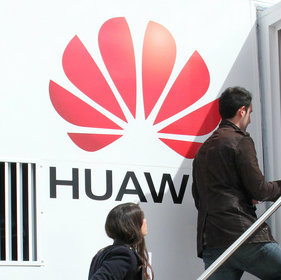Around 70% of Futurewei's employees will lose their jobs, the Chinese equipment giant has confirmed, with US trade restrictions to blame.

China's Huawei Technologies is cutting 600 jobs at Futurewei, its R&D subsidiary in the US, and has blamed the move on the impact of recent trade restrictions that prevent it from buying US technology.
The hefty cuts will leave Futurewei with just 250 employees and raise questions about its survival as an overseas Huawei subsidiary.
The move comes in the wake of Huawei's addition to the US "Entity List," a blacklist of organizations prohibited from dealing with US companies without special licenses.
That move had ramifications for Huawei mainly because the Chinese equipment vendor relies on components and software from numerous US companies, including Google, Intel and Qualcomm as well as smaller specialist firms.
But the US rules would also prevent Huawei from taking advantage of Futurewei's R&D expertise. While Huawei's name remains on the Entity List, Futurewei is a drain on resources without generating intellectual property Huawei can use.
The US subsidiary's operating costs totaled $510 million last year, according to a Huawei spokesperson. That figure represents nearly 5% of Huawei's cash flow from operating activities in 2018.
In a statement emailed to Light Reading, Huawei said: "Due to the curtailment of business operations caused by the US Department of Commerce, Bureau of Industry and Security's listing of Huawei Technologies and 68 subsidiaries on the 'Designated Entity List,' effective July 22, 2019 Futurewei Technologies announces a reduction in workforce, directly impacting over 600 US positions."
Huawei appears to have stopped short of closing Futurewei in case there is a change in circumstances. This week, US President Donald Trump has reportedly been in meetings with US technology companies -- including Broadcom, Google and Intel -- about the rules governing the sale of products to Huawei.
Critics of his administration's policy hope those meetings could lead to an easing of trade restrictions, which have hurt the US technology sector as well as Huawei.
It remains unclear whether any of the Futurewei employees losing their jobs will be offered positions elsewhere in Huawei. The company's spokesperson said eligible staff would be offered "severance packages, including both pay and benefits" and that what remains of Futurewei will "continue to operate in strict compliance with US local laws and regulations."
Whether or not trade restrictions are eased, Huawei is now developing a strategy it calls "business continuity management" to ensure it will be able to build products based on its current supply chain as well as "Huawei solutions" in future, it recently told Light Reading.
Analysts say China has recently accelerated its efforts to "internalize" the supply chain and warned that US component companies face damage from the trade war with China.
Want to know more about 5G? Check out our dedicated 5G content channel here on
Light Reading.
But many hardliners remain unsympathetic, arguing that Chinese companies including Huawei have ripped off US intellectual property and used it to build a dominant position in the market for communications technology.
In a research note issued today, John Strand, an outspoken consultant, said the main opposition to Huawei comes from organizations that have experienced hacking and intellectual property theft, and not from government bodies.
According to 2017 report by the US IP Commission -- which Strand cites in his research note -- Chinese theft of US intellectual property costs between $225 billion and $600 billion every year.
US authorities are currently pursuing legal action against Huawei and its chief financial officer, Meng Wanzhou (also the daughter of founder Ren Zhengfei), alleging that it sold technology to Iran and stole designs for a testing robot from T-Mobile, a US operator. Meng has been detained in Canada since December and is awaiting possible extradition to the US to face criminal charges.
US trade restrictions have had widespread repercussions. The UK government is considering whether to ban Huawei from its 5G market on national security grounds, but this week postponed any decision on the matter, partly out of concern about the recent US measures.
In a statement, digital secretary Jeremy Wright said the decision to add Huawei's name to the Entity List could "have a potential impact on the future availability and reliability of Huawei's products together with other market impacts and so are relevant considerations in determining Huawei's involvement in the network."
Related posts:
— Iain Morris, International Editor, Light Reading
About the Author(s)
You May Also Like










